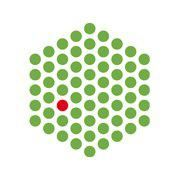 Identifying tumor cells at the single cell level through machine learning
Identifying tumor cells at the single cell level through machine learning
Date: 3 March 2022 @ 09:00 - 17:00
Tumours are highly complex tissues composed of cancerous cells, surrounded by a heterogeneous cellular microenvironment. A tumor’s response to treatments is governed by an interaction of the cancer cell’s intrinsic factors with external influences of the tumor microenvironment. Disentangling the heterogeneity within a tumor is a crucial step in the development and utilisation of effective cancer therapies. The single cell sequencing technology enables an effective molecular characterisation of single cells within the tumor. This technology can help deconvolute heterogeneous tumor samples and thus revolutionise personalised medicine. However, a governing challenge in cancer single cell analysis is cell annotation, that is, the assignment of a particular cell type or a cell state to each sequenced cell. The identification of tumor cells within single cell or spatial sequencing experiments remains a critical and limiting step for research, clinical, and commercial applications. In this webinar, we will discuss these challenges and a novel machine learning pipeline aimed at performing automatic annotation and distinguishing tumor cells from normal cells at the single cell level.
About the speaker
Altuna Akalin is a bioinformatics scientist and the head of Bioinformatics and Omics Data Science Platform at the Berlin Institute of Medical Systems Biology, Max Delbrück Center (MDC) in Berlin. He has developed computational methods for analysing and integrating large-scale genomics data sets since 2002. He uses machine learning and statistics to uncover biological patterns, for example those related to disease state and type. In his current work he uses complex molecular signatures to provide decision support systems for disease diagnostics and biomarker discovery. Additionally, he is actively involved in organising and teaching at computational genomics courses.
Contact: Daniel Thomas Lopez - [email protected]
Keywords: Cell-level simulations, Personalised medicine, PerMedCoE, Single cell
Organizer: European Bioinformatics Institute (EBI)
Host institutions: EMBL-EBI
Capacity: 500
Event types:
- Workshops and courses
Scientific topics: Metabolic network modelling, Systems biology, Machine learning
Activity log

 EMBL-EBI
EMBL-EBI
